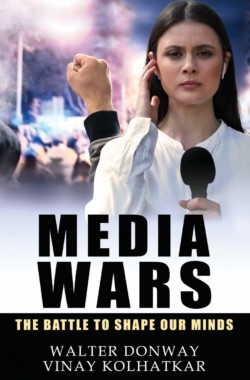Should U.S. Foreign Policy be in Search of Monsters?
Since antiquity, philosophers have posited some form of government as the endpoint of man’s political evolution. Plato thought a state run by philosopher-kings was the ideal. Karl Marx said communism was the final stop. Frances Fukuyama has argued that Western liberal democracy is optimal. However, these and other formulations amount to bets against the historical record, a wager that a player batting .000 will hit a home run in his next at bat. The very idea that humankind will march to some sort of static culmination ignores the immutably dynamic relationship between government and the governed, occasionally beneficial but usually destructive.
A prosperous, free, and peaceful polity living under a relatively good government—a historical rarity—contains the seeds of its own destruction.
All governments fail, because humans are human. Bad governments are overthrown by internal or external forces. A prosperous, free, and peaceful polity living under a relatively good government—a historical rarity—contains the seeds of its own destruction. There will be those who have more by dint of honest achievement, and they will be envied by those who have less. There are always more of the latter than the former, consequently, government officials can garner political advantage, not to mention divert wealth to themselves, by validating and enforcing the latter’s spurious claims. Such larceny puts a good government on the road to becoming a bad, and ultimately, a failed government.
The spreading pools of welfare-state red ink portend widespread bankruptcy. Even as their fiscal foundations rot, the U.S. and European model of redistributionist, increasingly indebted, democracy-driven, central-bank aided, unsustainable profligacy and vote buying is held out as a model for the rest of the world. When regimes are changed at the behest of the U.S.-European axis, it imposes most of its own creaky apparatus of governance on the countries suffering under its beneficence. Constitutions are drafted, representative legislative and executive branches established, a court system erected to protect newly won “rights,” and elections conducted in nations that have been ruled by autocrats and dictators for centuries. Oddly, it is deemed a matter of some urgency that client states adopt one of the axis’s signal failures: central banking.
Axis politicians and opinion-makers maintain the superiority of their model even for nations outside the ambit of the axis, arguing with no evidence that the oppressed people in such jurisdictions would adopt the axis model root and branch…if only they had a chance. Protests that the oppressed might like iPhones, Hollywood, social media, and western lifestyles, but not buy into western-style governance, are brushed aside. Millions of Chinese regularly demonstrate their rabidly nationalistic fervor for the Chinese regime on the internet and other media. They all can’t be government-sponsored trolls, so westerners dismiss them as brainwashed. Vladimir Putin has the support of 85 percent of Russians; yet, it is asserted, that it will fade quickly when NATO arms the Ukrainian government and body bags are shipped back to the Russia. (The USSR lost 18 million in WW II and Stalin’s popular support never cratered, but committed regime changers never let the historical record stand in the way of their rhetoric.) Under Lee Kuan Yew, Singapore transformed itself from colonial backwater to a prosperous, gleaming, modern city. He was an autocrat who ran a one-party state and never fully embraced civil liberties, but Singaporeans recently gave him a hero’s funeral and send off.
The logic of the superior political system—the supposed utopian end point of political progress—parallels the logic of the superior religion. Adherents of either hold that because their belief is superior, they have every right to impose it, by force if necessary, on those who believe in the inferior, for their own good. There is actually no need to distinguish between the political and religious; today’s unshakeable belief—call it faith—in salvation through the former matches any found in the latter, and is just as impervious to logic or empirical contradiction.
And empirical contradiction is rife. Imposing democracy on Iraq had two foreseeable consequences: the majority Shiites would dominate the government, to the detriment of the minority Sunnis and Kurds, and the government would move closer to the Shiite theocracy in next-door Iran. Beyond dispute both have happened, which should not bother true believers in Western liberal democracy. After all, these are the consequences of enfranchising Iraqis and fair and free elections; they are determining their own course. That course does bother the U.S. government, which exposes the hypocrisy of the export democracy movement. The government did not build one of its largest and most fortified embassies in the world in Baghdad to promote superior governance and the protection of civil liberties and minority rights. That embassy is an anchor of U.S. interests, not just in Iraq, but for the entire Middle East.
 The important test for a government is not how well or fairly it governs, but how well it toes the U.S. line. The former is only relevant if it impinges on the latter. The Obama Administration backed the replacement of democratically elected Prime Minister Nouri al-Maliki when he proved unable to stem the Islamic State advance last year. Nobody has raised an official objection for decades concerning the repressive, undemocratic practices of the governments of our Sunni Arab allies in the region, but our government constantly carps about the same practices by our enemy, Shiite Iran, and has imposed sanctions since the 1979 revolution.
The important test for a government is not how well or fairly it governs, but how well it toes the U.S. line. The former is only relevant if it impinges on the latter. The Obama Administration backed the replacement of democratically elected Prime Minister Nouri al-Maliki when he proved unable to stem the Islamic State advance last year. Nobody has raised an official objection for decades concerning the repressive, undemocratic practices of the governments of our Sunni Arab allies in the region, but our government constantly carps about the same practices by our enemy, Shiite Iran, and has imposed sanctions since the 1979 revolution.
Regime change in the name of democratic nation building has proven a costly farce, but regime change because our government doesn’t like the leader of the regime in question has been even more tragic.
Regime change in the name of democratic nation building has proven a costly farce, but regime change because our government doesn’t like the leader of the regime in question has been even more tragic. It can be argued that it started with unsuccessful efforts to get rid of Fidel Castro. (Indeed, there are suspicions of an ultimate backfire; Castro may have had a hand in the Kennedy assassination.) There was an element of the personal in the second Iraqi invasion; Saddam Hussein had tried to assassinate George W. Bush’s father. The U.S. joined a successful coalition for the disposal of Libyan henchman Muammar Gaddafi, but Libya was ripped apart and civil war, terrorism, and anarchy now plague the once stable, if repressively governed, country.
President Obama, clearly overmatched, does not like Vladimir Putin, and that may be behind U.S. maneuvers in Ukraine. The U.S. backed the overthrow of Ukraine’s democratically elected president, but the costs, in blood and treasure, of any full-scale U.S. military incursion would dwarf those of our Middle Eastern follies and probably end in disaster. Cooler heads have prevailed, so far, but there is widespread antipathy towards Putin, and a not insubstantial element of our government that would like to “take him out.” This is a pipe dream of the same magnitude as “reordering” the Middle East.
Back on Independence Day, 1841, U.S. representative and former president, John Quincy Adams, gave a long speech to the House of Representatives, made even longer because he read the entire text of the Declaration of Independence. That generation was more patient than ours, or perhaps the House was just showing deference to an esteemed elder statesman. Whatever their reasons, the representatives were privileged to hear one of the most important speeches in history.
Adams had his own vision of the perfect government: the one proclaimed by the Declaration of Independence.
It was the first solemn declaration by a nation of the only legitimate foundation of civil government. It was the corner stone of a new fabric, destined to cover the surface of the globe. It demolished at a stroke the lawfulness of all governments founded upon conquest. It swept away all the rubbish of accumulated centuries of servitude. It announced in practical form to the world the transcendent truth of the unalienable sovereignty of the people. It proved that the social compact was no figment of the imagination; but a real, solid, and sacred bond of the social union. From the day of this declaration, the people of North America were no longer the fragment of a distant empire, imploring justice and mercy from an inexorable master in another hemisphere. They were no longer children appealing in vain to the sympathies of a heartless mother; no longer subjects leaning upon the shattered columns of royal promises, and invoking the faith of parchment to secure their rights. They were a nation, asserting as of right, and maintaining by war, its own existence. A nation was born in a day.
An ardent abolitionist, Adams knew the Declaration was a statement of an ideal, not realized fact, but the ideal was the one for which humankind had to strive.
It will be acted o’er, fellow-citizens, but it can never be repeated. It stands, and must forever stand alone, a beacon on the summit of the mountain, to which all the inhabitants of the earth may turn their eyes for a genial and saving light, till time shall be lost in eternity, and this globe itself dissolve, nor leave a wreck behind. It stands forever, a light of admonition to the rulers of men; a light of salvation and redemption to the oppressed. So long as this planet shall be inhabited by human beings, so long as man shall be of social nature, so long as government shall be necessary to the great moral purposes of society, and so long as it shall be abused to the purposes of oppression, so long shall this declaration hold out to the sovereign and to the subject the extent and the boundaries of their respective rights and duties; founded in the laws of nature and of nature’s God. Five and forty years have passed away since this Declaration was issued by our fathers; and here are we, fellow-citizens, assembled in the full enjoyment of its fruits, to bless the Author of our being for the bounties of his providence, in casting our lot in this favored land; to remember with effusions of gratitude the sages who put forth, and the heroes who bled for the establishment of this Declaration; and, by the communion of soul in the reperusal and hearing of this instrument, to renew the genuine Holy Alliance of its principles, to recognize them as eternal truths, and to pledge ourselves and bind our posterity to a faithful and undeviating adherence to them.
The Declaration announced the principles of just government, for time and all eternity. A later paragraph is the most philosophically substantial: an elucidation of the Declaration’s foundational premises and an exposition of the policies towards other nations that necessarily follow from those premises.
And now, friends and countrymen, if the wise and learned philosophers of the older world, the first observers of mutation and aberration, the discoverers of maddening ether and invisible planets, the inventors of Congreve rockets and shrapnel shells, should find their hearts disposed to inquire, what has America done for the benefit of mankind? let our answer be this–America, with the same voice which spoke herself into existence as a nation, proclaimed to mankind the inextinguishable rights of human nature, and the only lawful foundations of government. America, in the assembly of nations, since her admission among them, has invariably, though often fruitlessly, held forth to them the hand of honest friendship, of equal freedom, of generous reciprocity. She has uniformly spoken among them, though often to heedless and often to disdainful ears, the language of equal liberty, equal justice, and equal rights. She has, in the lapse of nearly half a century, without a single exception, respected the independence of other nations, while asserting and maintaining her own. She has abstained from interference in the concerns of others, even when the conflict has been for principles to which she clings, as to the last vital drop that visits the heart. She has seen that probably for centuries to come, all the contests of that Aceldama, the European World, will be contests between inveterate power, and emerging right. Wherever the standard of freedom and independence has been or shall be unfurled, there will her heart, her benedictions and her prayers be. But she goes not abroad in search of monsters to destroy. She is the well-wisher to the freedom and independence of all. She is the champion and vindicator only of her own. She will recommend the general cause, by the countenance of her voice, and the benignant sympathy of her example. She well knows that by once enlisting under other banners than her own, were they even the banners of foreign independence, she would involve herself, beyond the power of extrication, in all the wars of interest and intrigue, of individual avarice, envy, and ambition, which assume the colors and usurp the standard of freedom. The fundamental maxims of her policy would insensibly change from liberty to force. The frontlet upon her brows would no longer beam with the ineffable splendor of freedom and independence; but in its stead would soon be substituted an imperial diadem, flashing in false and tarnished lustre the murky radiance of dominion and power. She might become the dictatress of the world: she would be no longer the ruler of her own spirit.
Continued on Page 2 >>>>>
Humans have rights because they are human. They are not gifts begrudgingly and only partially wrested from reluctant sovereigns—the British precedent—nor are they a matter of divine favor; they are “inextinguishable rights of human nature,” and they are “the only lawful foundations of government.” Among other nations, America has spoken “the language of equal liberty, equal justice, and equal rights.” But America can only remain America, “But she goes not abroad in search of monsters to destroy,” today the best-known sentence from this speech. It is the quintessentially “realist” foreign policy resting on an unassailably idealistic rationale. America must lead by example, not force, for upon becoming the “dictatress of the world: she would be no longer the ruler of her own spirit.” The Declaration’s light would be extinguished in the land of its birth.
And so it has been. Surveying the wreckage, both home and abroad, of the government’s quest “in search of monsters to destroy,” can anyone doubt the wisdom and prescience of Adam’s words?
« America 2016: The Dead-end of “Career Politicians” University Education As It Might Be and Ought To Be: Part II »










